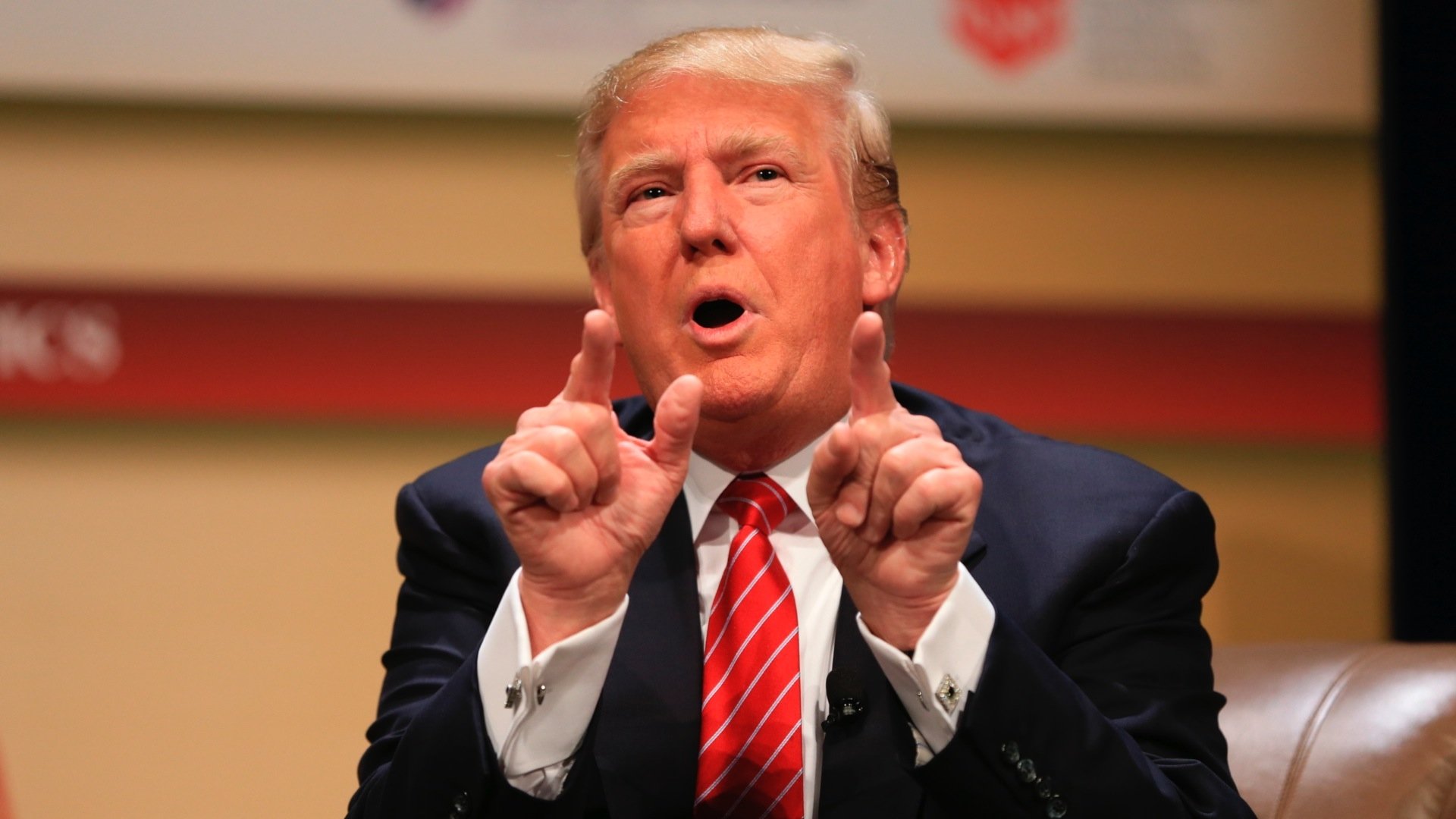
WASHINGTON — President Trump said Thursday that he would
prefer not going to war with North Korea over that country’s escalating nuclear
and missile programs, but he warned that “certainly that could happen.”
“Military action would certainly be an option,” Trump told
reporters during a joint question and answer session at the White House with
Kuwaiti Emir Sheikh Sabah al-Ahmad al-Jaber al-Sabah. “Is it inevitable?
Nothing is inevitable. It would be great if something else could be worked
out.”
The president noted that his predecessors had achieved
little by “talking, talking, talking” and cutting deals with North Korea.
“I would prefer not going the route of the military, but
it’s something certainly that could happen,” Trump said. “If we do use it on
North Korea it will be a very sad day for North Korea.”
While successive presidents of both parties have declared
that they want the complete and verifiable denuclearization of North Korea,
Trump did not rule out a scenario in which Washington could live with a
nuclear-armed regime in Pyongyang, deterred from action by the prospect of
nuclear annihilation by U.S. forces.
Asked by a reporter whether he could accept that outcome,
Trump replied: “I’m not negotiating with you. Maybe we’ll be able to have a
chance to negotiate with somebody else. But I don’t put my negotiations on the
table.”
President Trump looks on as Kuwaiti
Emir Sabah al-Ahmad Al-Sabah speaks during a joint press conference at the
White House on Sept. 7, 2017. (Photo: Jim Watson/AFP/Getty Images)
Trump’s remarks came a day after Secretary of State Rex
Tillerson, Secretary of Defense James Mattis, and Director of National
Intelligence Dan Coats briefed members of the Senate and House of
Representatives behind closed doors on the escalating crisis.
The pressure on the president increased over the past week
after North Korea claimed to have successfully tested a hydrogen bomb in what
would be its most powerful nuclear blast to date. U.S. officials, who have not
disputed the assertion, are bracing for another provocative act by the North —
a missile launch, for example — when the country celebrates its founding on
Saturday.
Sources say that Trump recently received an updated package
of detailed options — diplomatic, economic and military — for confronting North
Korea and inducing its primary patron, China, to tighten the economic vise on
the regime in Pyongyang. Some lawmakers have stepped up calls for American
sanctions on Chinese entities, like banks, that do business with North Korea.
U.S. officials say that they expect the Trump administration
to ramp up the pressure over the coming weeks and months. But military action —
seen as a last resort — would risk triggering retaliation by North Korea, which
has South Korea’s capital, Seoul, within range of its artillery and could reach
targets in Japan with rockets. Former senior Trump strategist Steve Bannon said
in a recent interview after leaving the White House that the prospect of a
death toll in the tens of millions made waging preventive war unthinkable.
“There’s no military solution [to North Korea’s nuclear
threats], forget it,” Bannon told the
American Prospect. “Until somebody solves the part of the equation
that shows me that 10 million people in Seoul don’t die in the first 30
minutes from conventional weapons, I don’t know what you’re talking about,
there’s no military solution here, they got us.”
President Trump, left, shakes
hands with Emir of Kuwait Sabah Al-Ahmad Al-Sabah during a joint news
conference at the White House on Sept. 7, 2017. (Reuters/Kevin Lamarque)
In an early test of
peaceful options, the United States is pushing the United Nations Security
Council to impose an oil embargo on North Korea, further restrict its exports
of textiles, curb the hiring of North Korean workers abroad and freeze North
Korean leader Kim Jong Un’s assets and ability to travel overseas. Impoverished
North Korea’s centrally planned economy depends on China for most of its trade
and energy supplies and earns foreign currency through limited exports and the
wages of its citizens laboring abroad.
Trump aides say
sanctions alone are unlikely to get North Korea to abandon its weapons
programs, which the regime sees as guarantors of its survival.
Since taking office,
Trump and senior officials have stepped up the rhetoric aimed at the North. In
the past month alone, Trump has threatened to unleash “fire and fury” on the
regime and warned that the U.S. military is
“locked and loaded.” This week, his ambassador to the United
Nations, Nikki Haley, said North Korea was “begging for war.”
At the same time,
Tillerson and Mattis have also said that Washington’s goal is not regime change
in Pyongyang.
Tensions have steadily
escalated since July, when North Korea fired two intercontinental ballistic
missiles — tests that showed its rockets could reach U.S. soil, according
to U.S. intelligence officials. The United States responded by rallying an
unusual 15-0 United Nations Security Council vote in favor of a package of
tough new economic sanctions on the regime. In early August, news outlets
reported that American intelligence confirmed a finding by Japan’s defense
ministry that North Korea has likely developed warheads small enough to fit on
its missiles.
There are still many
questions about Pyongyang’s capabilities — how reliable are its guidance
systems? Has it devised reentry systems to ensure that its warheads would not
burn up in the atmosphere?
In his appearance on
Thursday, Trump sent a blunt message to Kim: “North Korea is behaving badly,
and it’s got to stop.”




No comments:
Post a Comment